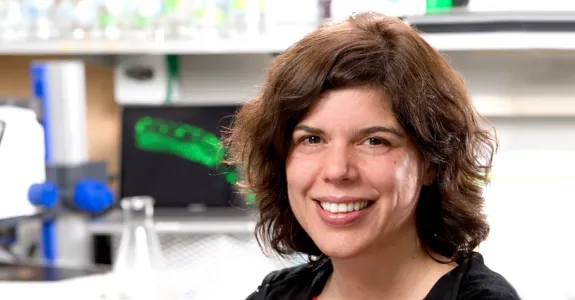
Dr. Anne Brunet's laboratory's overarching goal is to understand the genetic mechanisms of aging and longevity. Aging is a highly plastic process regulated by a combination of genetic and environmental factors.
The Brunet laboratory has a long-standing interest in the genetic pathway that connects insulin to FOXO transcription factors, a central pathway to regulate lifespan from worms to humans. They use a combination of genetic, molecular, and cellular approaches to analyze the regulation and importance of FOXO transcription factors, and more generally 'longevity genes' in mammals. They are particularly interested in the role of longevity genes in the maintenance of the pool of adult neural stem cells and intact cognitive function during aging. They also use ultra-high throughput sequencing technologies to study epigenetic changes and transcriptional networks during aging.
In parallel, their goal is to identify novel longevity genes using short-lived animal models. Their lab uses unbiased approaches in the nematode C. elegans to identify novel pathways that control organismal longevity, particularly in response to dietary restriction. They are particularly interested in the role of chromatin modifiers in the regulation of lifespan and metabolism.
Finally, they are developing the extremely short-lived African killifish N. furzeri as a new vertebrate model for aging studies. They are taking advantage of this fish to explore the genetic architecture of longevity in vertebrates.








